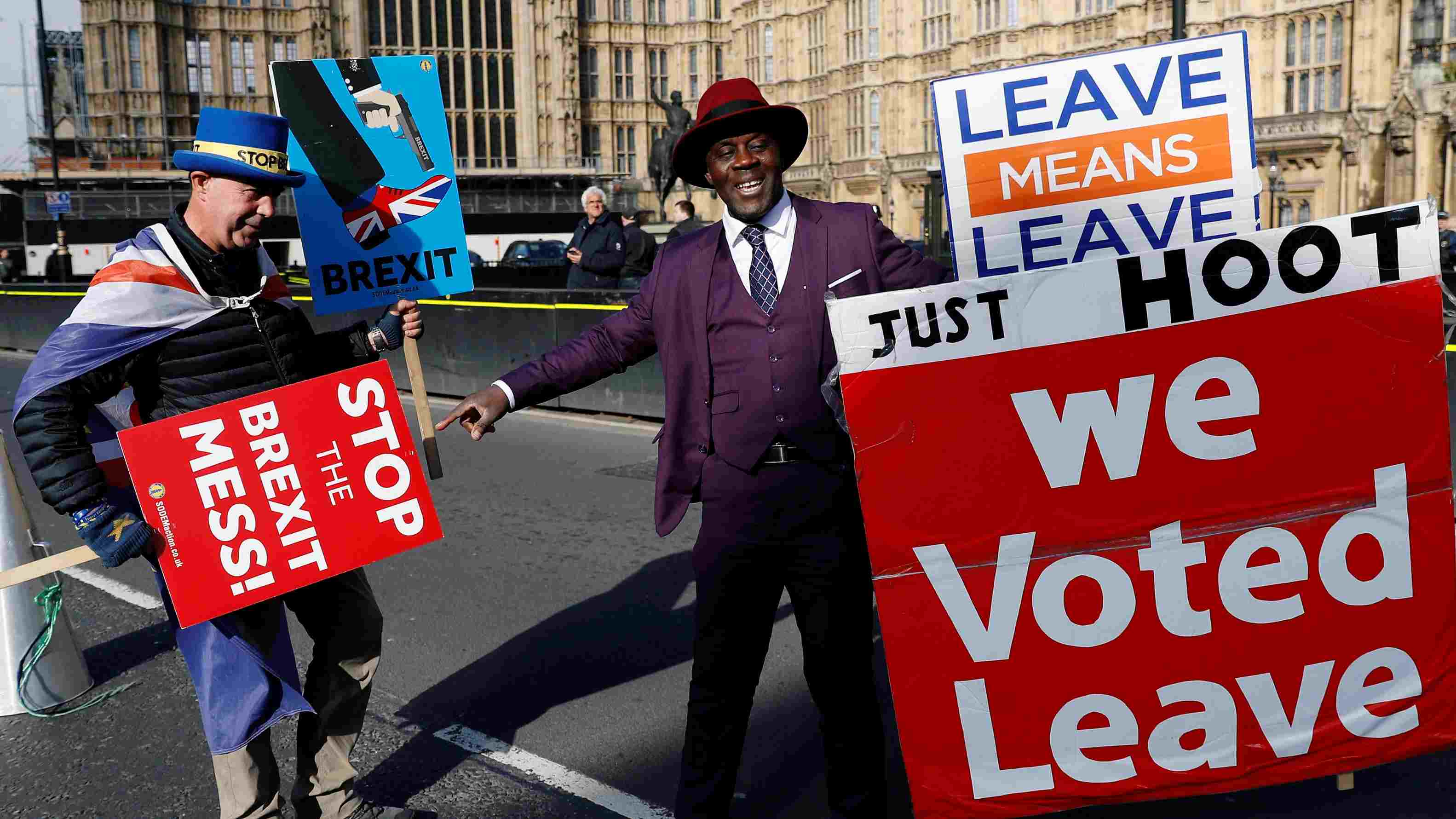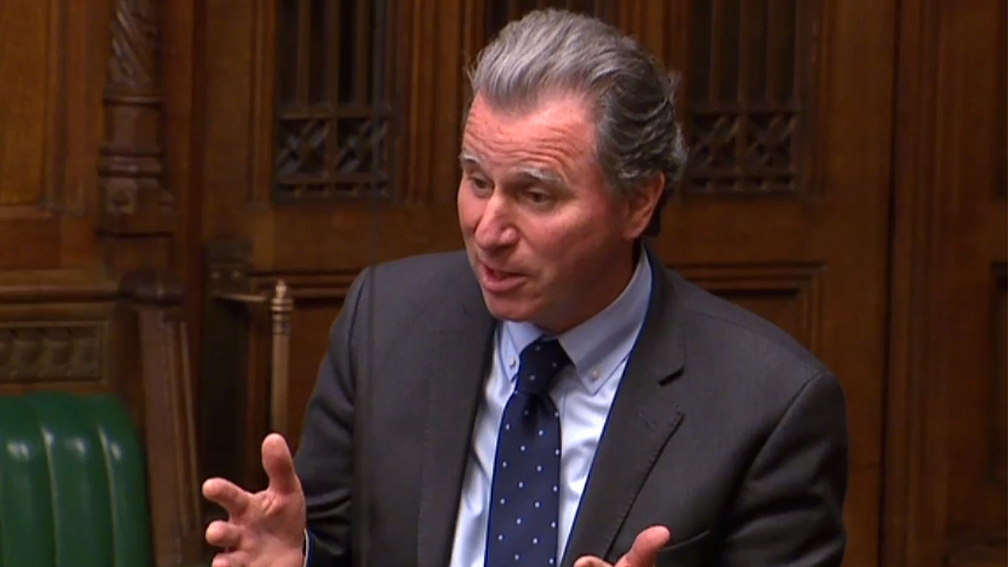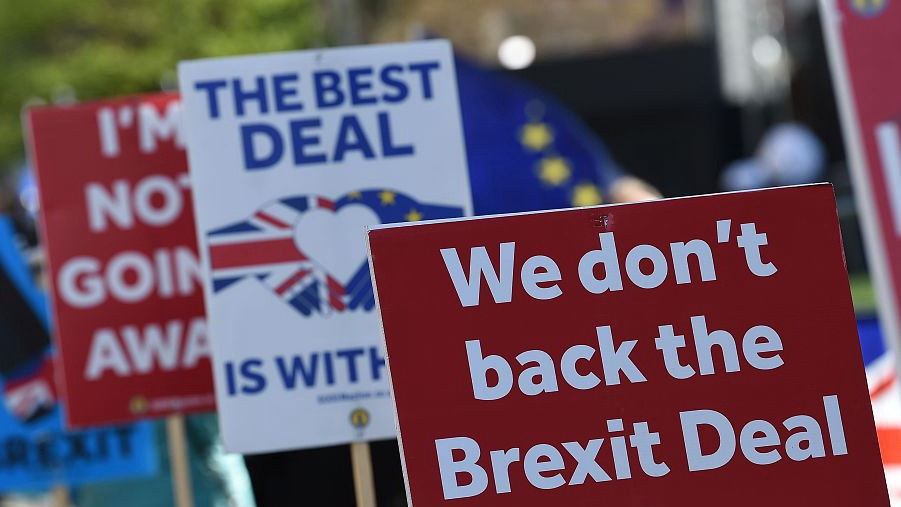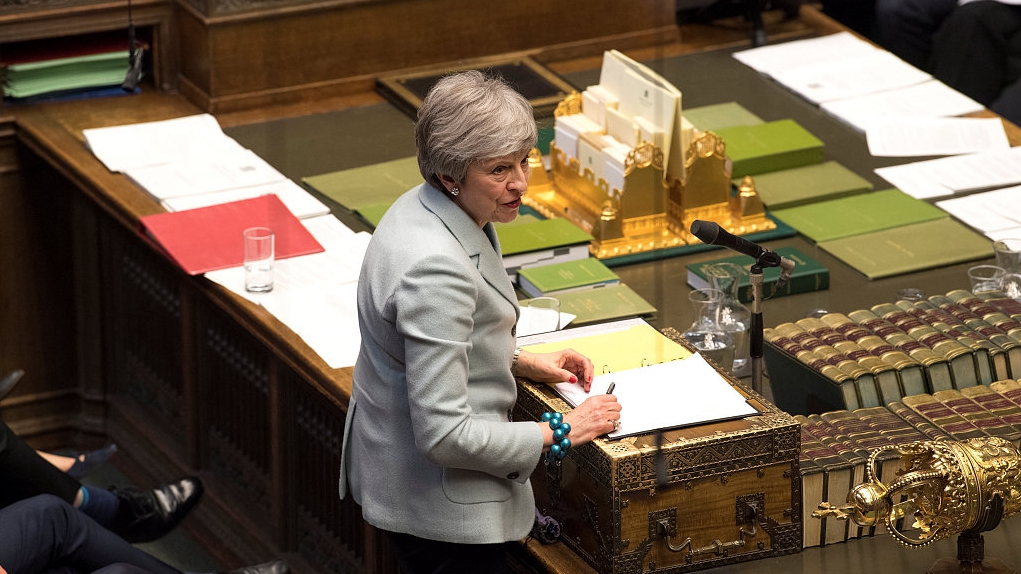
Europe
11:58, 26-Mar-2019
Indicative votes could signal a softer Brexit – or an election
By John Goodrich

The vote by British MPs to take control of the Brexit process away from the government – for a day – opens up a raft of possibilities and new uncertainties.
The 329-302 vote on a cross-party amendment means MPs will cast ballots on a series of options on Wednesday in the hope of finding a way forward for Brexit that commands a majority in the House of Commons.
This is a very rare step, and could open up a fresh can of Brexit worms. Or fall flat.
Read more:
Theresa May warned that the move set an "unwelcome precedent," which may be true, but of more immediate significance was the latest sharp rebuke to the prime minister and her government when both are under extreme pressure.
It was a major defeat. Thirty members of May's Conservative Party, including three ministers who resigned in order to support the amendment, voted to essentially say the government was unable to find a solution to Brexit.
And this came after the prime minister again declined to put her deal with the European Union to MPs, acknowledging that "as things stand" it would be defeated for a third time.
The successful amendment was tabled by senior Conservative Sir Oliver Letwin, a mainstay of the Cameron era. It was a sign of the lack of trust in the government that its promises to hold a series of similar votes were ignored.

Conservative MP Sir Oliver Letwin speaks in the House of Commons in London, March 25, 2019. /VCG Photo
Conservative MP Sir Oliver Letwin speaks in the House of Commons in London, March 25, 2019. /VCG Photo
Letwin will now guide Wednesday's events in parliament. It is not yet known how the votes will be carried out, whether MPs will be able to vote freely or be bound by party orders, or what the choices will be.
Possible options include a Common Market 2.0 (essentially maintaining economic ties with the EU, but not political or judicial), a second referendum, a Canada-style free trade deal, customs union membership, revoking Article 50, May's deal and no deal.
The votes will not be binding, and there's a good chance none of the alternatives receives a majority.
If a majority is found for an option which does not meet the Conservatives' manifesto commitments – or requires a long delay to Brexit – it is unlikely to be pursued by the government.

Anti-Brexit placards outside the Houses of Parliament in London, March 25, 2019. /VCG Photo
Anti-Brexit placards outside the Houses of Parliament in London, March 25, 2019. /VCG Photo
This would open a new chain of drama.
The expectation is that a soft Brexit such as the Common Market 2.0 plan or customs union membership has the best chance to win a majority.
A vote for such an option would dramatically increase the chances of a snap general election, because though there would be a majority of MPs willing to pursue a particular type of Brexit, the government would be unwilling to deliver.
That could mean a vote of no-confidence in the government, or May – who in December pledged not to lead the party into another election in a bid to save her job – herself calling for a poll.

British Prime Minister Theresa May speaks in the House of Commons in London, Britain, March 25, 2019. /VCG Photo
British Prime Minister Theresa May speaks in the House of Commons in London, Britain, March 25, 2019. /VCG Photo
The political games are underway. The threat of a general election with May at the helm may prevent some Conservatives from voting for a softer option, particularly after the disastrous 2017 poll in which the party lost its majority. Meanwhile, the prospect of a softer Brexit is being used to try to persuade hardliners to back May's deal.
The agreement struck with the EU last week mandates that May's deal must be passed this week in order to extend the deadline to May 22. Otherwise the exit date is April 12, unless another extension is agreed.
The prime minister wants to hold another vote on Thursday but relations between the Conservatives and the Democrat Unionists (DUP), the Northern Irish party which gives them a majority in parliament, appeared to deteriorate significantly on Monday. And hardline Conservatives have said they will follow the DUP when casting votes on May's deal.
As ever with Brexit, political maneuvers are raging and a desire to hold parties together is overriding progress through compromise. The deadlock continues, for another day at least. But Wednesday's votes should jolt the process – and an election shouldn't be ruled out.

SITEMAP
Copyright © 2018 CGTN. Beijing ICP prepared NO.16065310-3
Copyright © 2018 CGTN. Beijing ICP prepared NO.16065310-3